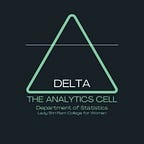The Subtle Art of Not Giving in to a Nudge
Imagine you have a task at hand. Or rather, now you have this task at hand.
You have to make people throw litter in recycling bins.
Take a minute to ideate effective solutions.
Most people would try bringing in new policy changes (because who doesn’t like controlling other people) or some would even try incentivizing people to throw in bins through prizes or announcements of sorts. Mostly everyone would try to bring in an external factor to influence the decision of recycling.
Now take a look at this image-
Basketball hoops over recycling bins have been considered as an effective ‘nudge’ to get people to recycle more often.
To ‘nudge’ or to poke someone to do something is what nudge theory is all about.
The concept of nudge theory was popularized in the book Nudge: Improving Decisions About Health, Wealth, and Happiness by Richard Thaler and Cass Sunstein. This theory was initially devised to prompt more people to pay taxes, however because of its significant contribution to behavioural economics, it went on to win the Nobel Prize in economics in 2017.
The more formal and economic definition of a nudge as stated in the book is-
“A nudge, as we shall use the term, is any aspect of the choice architecture that alters people’s behaviour in a predictable way without forbidding any options or significantly changing their economic incentives. To count as a mere nudge, the intervention must be easy and cheap to avoid.”
In the 1970s, two psychologists, Daniel Kahneman and Amos Tversky defied Aristotle to prove that, “[h]umans are born irrational, and that has made us better decision-makers.” Corporate marketers are trying to harness the maximum advantage of this. The nudge theory exploits the fact that we have cognitive biases to make us take decisions that theoretically benefit us and the corporates. They not only use nudge theory to influence our choices but can go as far as manipulating us into buying something. Hence, the ethical conundrum behind this is much debated.
“Nudge marketing refers to deliberately manipulating how choices are presented to consumers. Its goal is to influence what consumers choose, either to steer them toward options that the marketer believes are good for them or simply to stimulate purchases and increase sales.”
Nudge marketing may not always have the desired outcomes. Weak nudges can become redundant whereas nudges that are overt might easily backfire. It is important to strike a balanced composure. While this may sound ethically incorrect, another way to look at it is, if we were not influenced by nudges, every decision that we make would be over-rationalized and complicated. So, are we leading easier lives from being irrational? It is very difficult to draw a line when ‘persuasion becomes coercion.’
While it may be very easy to blame nudge marketing for playing with our cognitive biases, nudges are often used to reinforce good consumption and healthy lifestyle habits. Research conducted by BMC Public Health, a recognized health journal, demonstrated that nudge interventions on average cause a 15.3 % (95 % confidence: 7.58, 23.0) increase in healthier consumption decisions, as measured by frequency of healthy choices or by overall intake. Google chooses to place low sugar drinks at eye level on the stacks at its offices. A lot of restaurants are opting to place salads before burgers or unhealthy alternatives at a buffet. These nudges resulted in increased consumption of low sugar drinks and salads, encouraging people to adopt healthier eating habits.
Anchoring is a fascinating and relevant concept to consider when making decisions. It is a cognitive bias that we all have. It defines a propensity to make decisions based solely on the first piece of information available. After the first option (the anchor) is presented, all subsequent options are compared to it, and adjustments are usually made. This is another example of a nudge. When selling a car, for example, car dealers can employ this strategy. They would state the price of a car at the start of negotiations. This initial price serves as a benchmark to which the consumer can compare and adapt. Because of the initial anchor, any price below it seems to be a good deal, even though the initial price was higher than the actual value.
Another example of nudge marketing is the hidden anchoring strategy used by Starbucks. To persuade users to send a large reload number, the Starbucks app uses default reload amounts as anchors. To access the secret options of $10, $15, and $20, the user must first choose the “Other” option. However, avoiding anchoring can be challenging.
In reality, nudges are inevitable and no choice architect can be completely neutral. But acknowledging the power of nudging, its low cost, and easy implementation, the marketers are tempted to employ it to attract their users. This drives them to infringe the user’s data privacy. With access to big data, marketers gain the ability to influence consumer’s behaviour because they already have sufficient information about them to build a contextualized nudge. This calls for a balance between the use of Nudge and information transparency which should be adjusted and reconsidered continuously.
While nudging is highly effective and helps the consumers make quick decisions, it hides a subtle yet imperative clause. The final choice you make might even be in your self-interest, but the decorated cake put in front of you is a choice made for you. A choice made for you by complex algorithms of multinational enterprises. It’s a trade-off between autonomy and agency. We don’t ask you to filter these selective choices, we simply ask you to be aware of them.
By — Ananya Gupta, Ishita Agarwal, Shravni Indurkar
References-
https://www.youtube.com/watch?v=jVTg3ZsNTTY&t=5s
https://cxl.com/blog/nudge-marketing/
https://towardsdatascience.com/hyper-nudges-and-big-data-d15767b2ee0b
